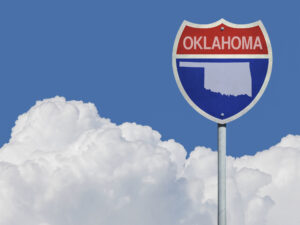
Proposed statute language in Oklahoma could be problematic for labor rates
By onCollision Repair | Insurance | Legal
The Oklahoma Insurance Department (OID) is proposing that insurers use a market survey to establish a competitive price for vehicle repairs, but the wording in the statute could be more problematic than helpful.
“To establish a competitive price for motor vehicle repairs in accordance with 36 O.S. § 1250.8(H), an insurer shall conduct a market survey of the prices charged for repairs performed in accordance with manufacturing standards by repair facilities within the CBSA [Core-based statistical areas] the facility performing the repairs is located within or is nearest to,” the proposed language says. “A competitive price shall be an amount equal to or greater than the mean of all of the prices provided to the insurer by repair facilities within the CBSA that are capable of making the repairs in accordance with the applicable manufacturing standards.”
The language doesn’t outline how the insurer should determine a repair shop’s capability to meet manufacturer standards.
It also doesn’t define how a repair business is deemed capable of meeting manufacturer standards. For example, training, tools, or certifications needed.
The language also doesn’t seem to specifically require shops that are included in the survey to perform repairs to manufacturer standards. Instead, it only focuses on a shop’s capability to meet the standards, which could result in a repair facility that is otherwise capable of performing proper repairs to standards, but without the reputation of doing so, to be used as an influencing factor in the competitive price.
It also says, “Insurers may use automobile collision repair estimating software to establish competitive prices if the software complies with the requirements set forth in 36 O.S. § 1250.8 and this rule.”
It doesn’t define the requirements the software needs to comply with. It also ignores a disclaimer estimating systems typically have. For example, CCC states its reports are not intended to establish competitive prices.
Estimating software data is not a reflection of posted door rates in a market, and estimating systems like CCC have made it clear in the past that “CCC does not conduct labor rate surveys or report on prevailing street rates.”
In fact, the disclaimers printed on reports provided to insurers by CCC, make it clear that the reports are not intended to establish competitive prices. The disclaimers state:
“Use and distribution are subject to the restrictions set forth in the Master Data License Agreement between CCC and Company. All information contained in this report is solely for internal use by the Company and is not to be distributed to any other company. This is not a labor rate survey, rates reported are aggregated based on the data sets included. This report is an aggregation of industry data collected from customers that use CCC ONE® Estimating collision estimating software and/or communicate electronic appraisals via CCC’s CCC ONE® Workflow network, where data has been aggregated by the geographic areas as defined within the report. Reported repair facility data includes data from appraisals where repair facility has written the appraisal on behalf of insurance carrier(s) as part of a DRP or Open Shop program. Reported staff appraiser data includes data from appraisals written by insurance staff appraisers on behalf of insurance carriers(s).”
OID’s proposal focuses on a survey of price charged, rather than a survey of posted rates. This would create a loophole for insurers to include costs the billpayer negotiated down or denied, such as use rates from Direct Repair Network (DRP) shops.
California’s Department of Insurance (CDI) previously found insurers were using DRP shop pricing when creating price surveys, according to CDI Deputy Commissioner Tony Cignarale, who spoke during a Society of Collision Repair Specialists open meeting last month. He said his department was able to end the behavior.
Oklahoma’s proposed language also focuses on the mean price. This could hurt businesses with higher pricing due to advanced training, equipment, or certifications.
During a case last year, a Pennsylvania judge ruled that no single labor rate is fair and reasonable for collision shops.
“Much as there is a range of rates charged by various professionals from plumbers to electricians to attorneys, no single rate is dispositive or the sole fair and reasonable rate that the market will bear. There is, of course, some upper limit to the amount that may be charged per hour by an auto body shop and still be reasonable,” Chester County Court of Common Pleas Judge Bret M. Binder wrote in an opinion.
IMAGES
Photo courtesy of Grafissimo/iStock
